A couple from Maidstone contacted Tile Doctor earlier this year regarding their Sandstone tiled floors which needed rejuvenating. After a brief exchange of emails, we arranged a date for a site visit so I could survey the floors and come up with a renovation plan.
They had two tiled floors that required attention, totalling around 30m2. There were two rooms that required attention, that larger of which was covered by a carpet and the other was a utility room. Tests in the Utility Room proved that the stone and grout would clean up well and demonstrated that the varied natural colours in the stone would result in a lovely finish.
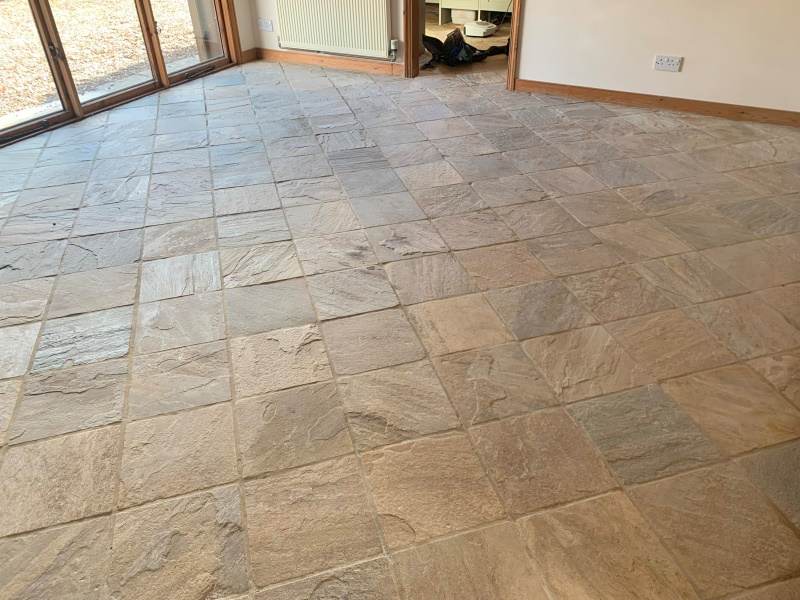
Based on the tests I put together a renovation plan and quote which was readily accepted, and a date agreed for the work to commence. My only proviso was that the carpet needed to be taken up prior to my arrival.
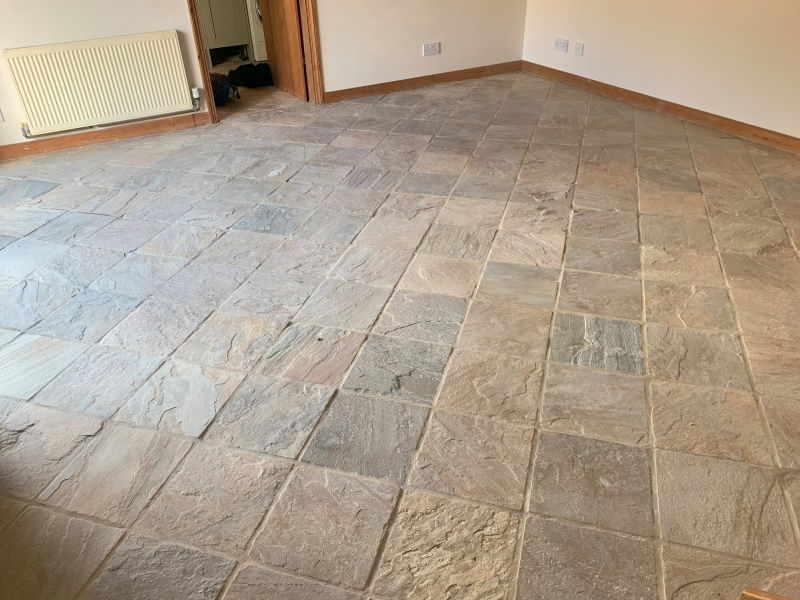
Cleaning a Sandstone Tiled Floor
Upon arrival for the start of the work, it was clear that the carpet had been protecting the floor and keeping the Sandstone in good condition. However, there were some stubborn adhesive marks where the carpet gripper had been stuck to the tile that would need dealing with. I had anticipated this and was able to soften the glue with an application of Tile Doctor Remove and Go so it could be removed with a stiff brush.
Given the uneven, riven nature of the stone and the wide grout lines, I opted to use a Silicon Carbide Brush to clean the floor. The pad is applied with a rotary floor buffer in conjunction with plenty of water and Tile Doctor Pro-Clean which is a strong alkaline tile and grout cleaning agent.
The process pulled the dirt out of the Sandstone turning the water black and this was the removed using a wet vacuum as I went along. The floor was then inspected, and it was onto my hands and knees to clean the grout, stubborn marks and any areas that the buffer had been unable to get to.
Last step of the cleaning process was to give the floor and acid rinse using Tile Doctor Grout Clean-Up to further clean the floor and neutralise its pH level after the alkaline cleaner. Another rinse with water, extraction with the wet vacuum and the cleaning was complete.
Both floors were then left to allow them to dry out overnight so they would be ready for sealing the next day which is when the magic happens.
Sealing Sandstone Floor Tiles
The next day, I returned and although the floors looked dry, I tested several areas with my moisture meter to be sure. Its not a good idea to apply a sealer to a damp floor as it can affect the result.
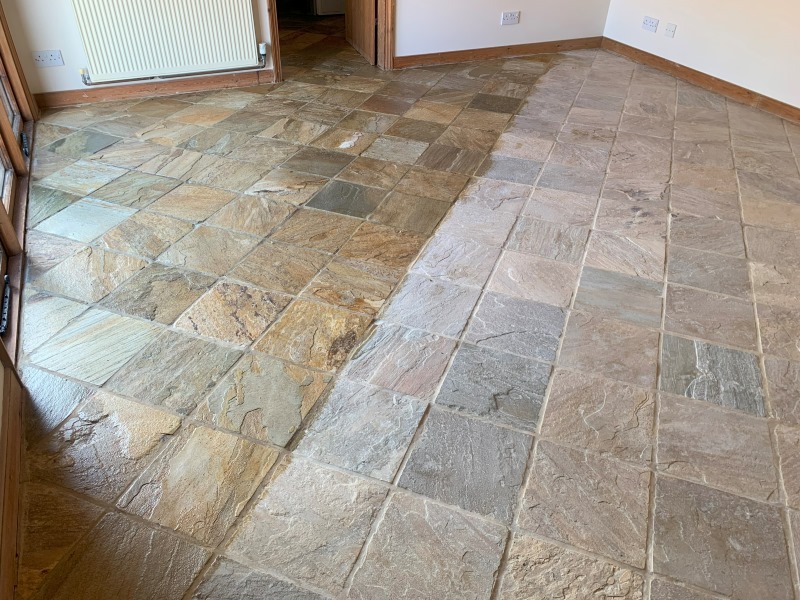
To seal this floor, I used Tile Doctor X-Tra Seal which is an oil-based impregnator sealer that contains a colour intensifier. It’s a hard-wearing sealer that’s perfect for enhancing the natural colours within the stone. Only one coat of sealer was needed which was applied by rubbing into the stone with a cloth, it dries very quickly however it can take up to twelve hours to fully cure.
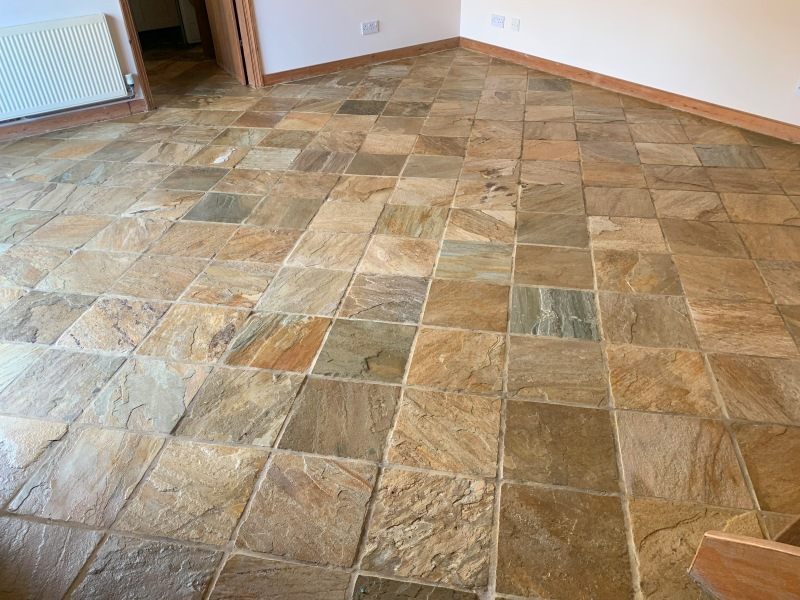
Being an impregnator, X-Tra Seal soaks into stone occupying the pores and preventing dirt from residing there. This ensures dirt remains on the surface where its easily cleaned away.
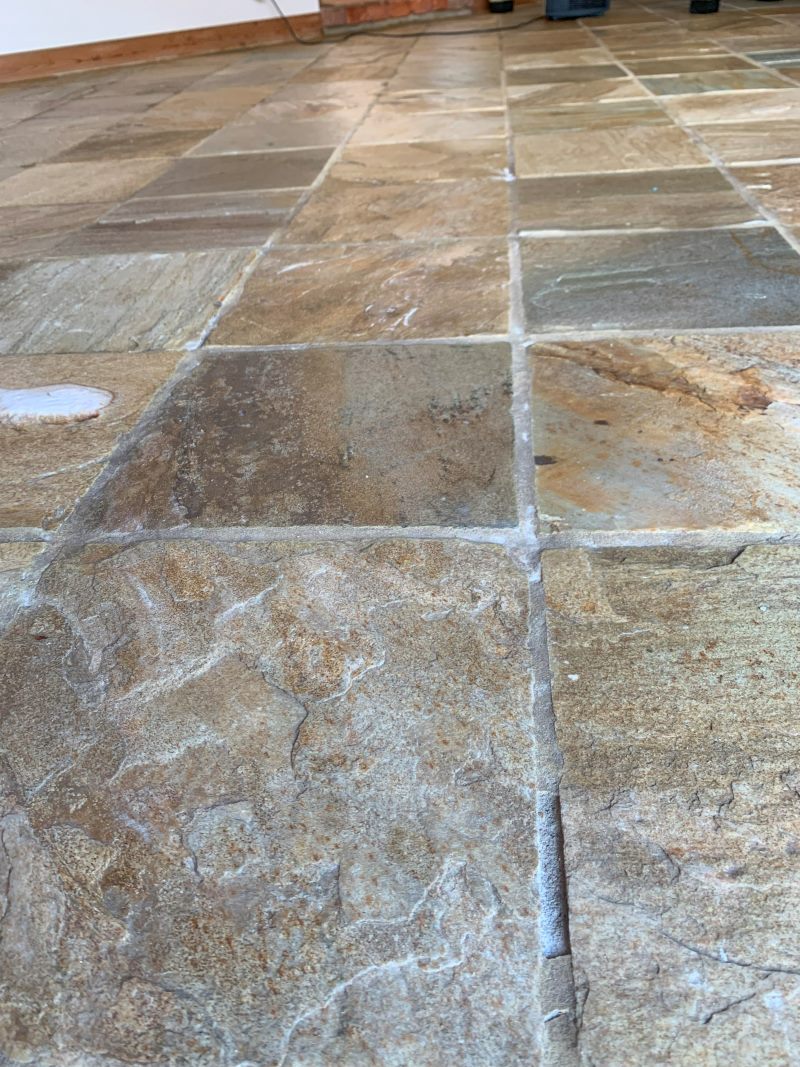
As I progressed, I was pleased to see that my expectations on the outcome were being met! One tile, when sealed, even showed evidence of a prehistoric, fossilised plant that wasn’t obvious before.
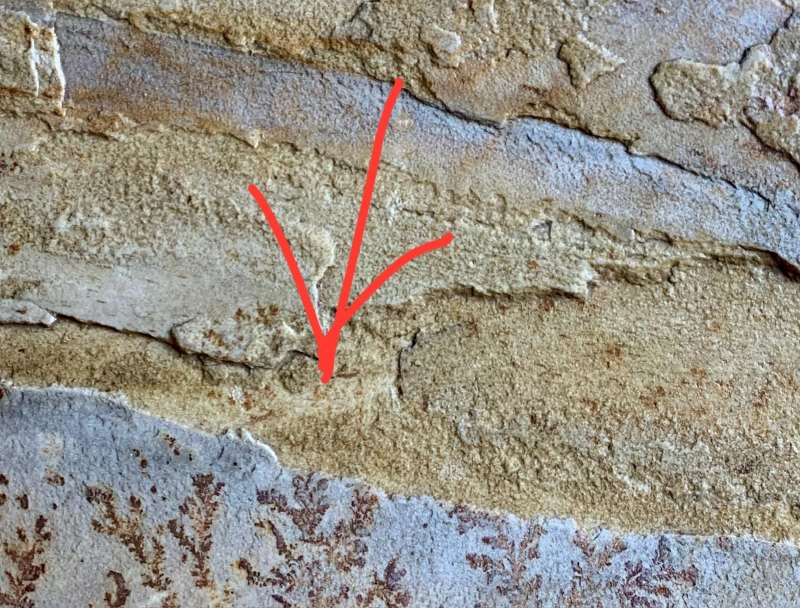
With the floor cleaned and sealed, all that remained was to advise the couple on aftercare cleaning for which I left them with a bottle of Tile Doctor Neutral pH Tile Cleaner.
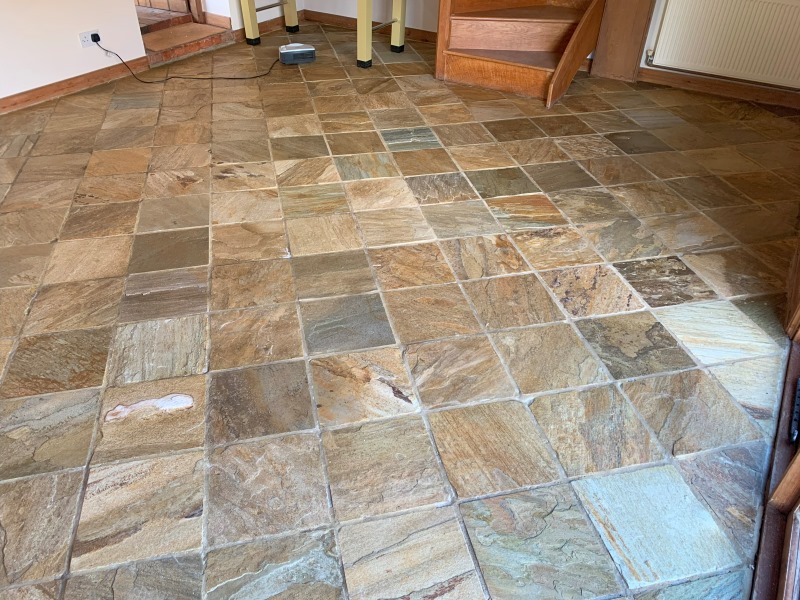
Source: Sandstone Tile Cleaning and Sealing Service in Maidstone Kent
Serving Maidstone and North Kent, Graham Davis is your local Tile, Stone and Grout maintenance expert. Additionally he is an agent of Tile Doctor, the largest professional Tile, Stone and Sandstone Tile restorative cleaning network in the UK. Tile Doctor has developed products and techniques to handle a multitude of issues surrounding tile, stone and Sandstone Tile, interior, exterior, domestic or commercial.